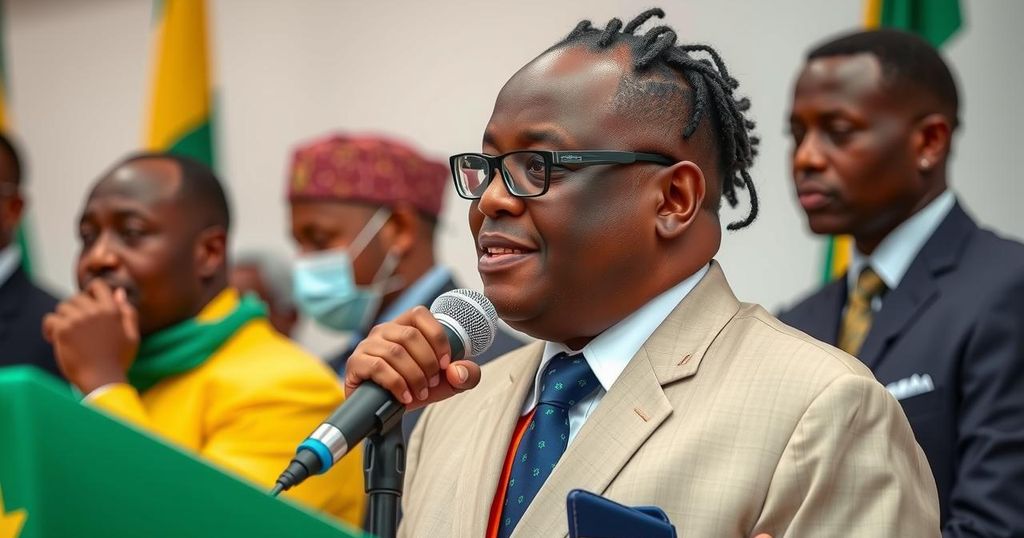Gabonese Referendum Yields Overwhelming Support for New Constitution Amid Controversy

Gabonese military rulers indicate that a new constitution has received overwhelming support in a recent referendum, with 91.8 percent of voters backing it. Despite this, voter turnout was low at 53.54 percent. The constitution limits presidential terms and alters candidacy requirements, effectively barring former president Bongo and consolidating power within the junta. Critics argue the constitution may entrench authoritarianism rather than advancing democracy, raising concerns over electoral legitimacy.
Provisional results from Gabon’s recent referendum indicate overwhelming support for a newly proposed constitution, as announced by the military authorities. Approximately 860,000 registered voters were encouraged through various media outlets to participate in the voting process, with 91.8 percent endorsing the new framework that stipulates a presidency limited to two seven-year terms, the absence of a prime minister, and prohibitions against dynastic power transfer. However, voter turnout was reported at only 53.54 percent, a substantial decline from earlier estimates and reflective of a campaign saturated with pro-junta messaging, which raised concerns about the legitimacy of the electoral process.
The proposed constitutional amendments assert that presidential candidates must be exclusively Gabonese by birth and must have a Gabonese spouse. This provision disqualifies former president Ali Bongo Ondimba, thereby consolidating power within the junta, led by transitional president Brice Oligui Nguema. Nguema characterized the referendum as a significant advancement for democracy in Gabon while asserting a commitment to restoring civilian governance after a transitional period.
While many voters expressed confidence in the junta and the transparency of the voting process, critics assert that the new constitution primarily serves to entrench authoritarian rule rather than democratization. Observers highlighted significant concerns regarding the appropriateness of the timing and context of the referendum, suggesting it may be an attempt to legitimize the junta’s power amidst widespread national challenges, including unemployment and corruption that had characterized the previous administration. The final results will be confirmed by the constitutional court, amid declining public trust in the electoral integrity.
The recent referendum in Gabon arises from a political landscape dramatically affected by a military coup that overthrew the long-standing president Ali Bongo Ondimba. This coup was rooted in allegations of significant corruption and misconduct within Bongo’s administration, which had perpetuated a dynastic rule characterized by the leadership of Bongo’s father for over four decades prior. Following this upheaval, the military junta has sought to establish a new political framework through constitutional reforms, aiming to gain legitimacy while addressing public dissatisfaction centered on governance, economic stability, and the need for a clear political succession.
The approval of Gabon’s new constitution marks a pivotal moment in the nation’s political trajectory as it strives to redefine governance following years of dynastic rule under the Bongo family. Nevertheless, the referendum’s legitimacy is questioned due to low voter turnout and a campaign dominated by military propaganda. The junta’s commitment to returning to civilian rule remains to be seen, as concerns about the potential entrenchment of dictatorial power loom large over the electorate’s hope for positive change and transparency.
Original Source: www.tiogapublishing.com







